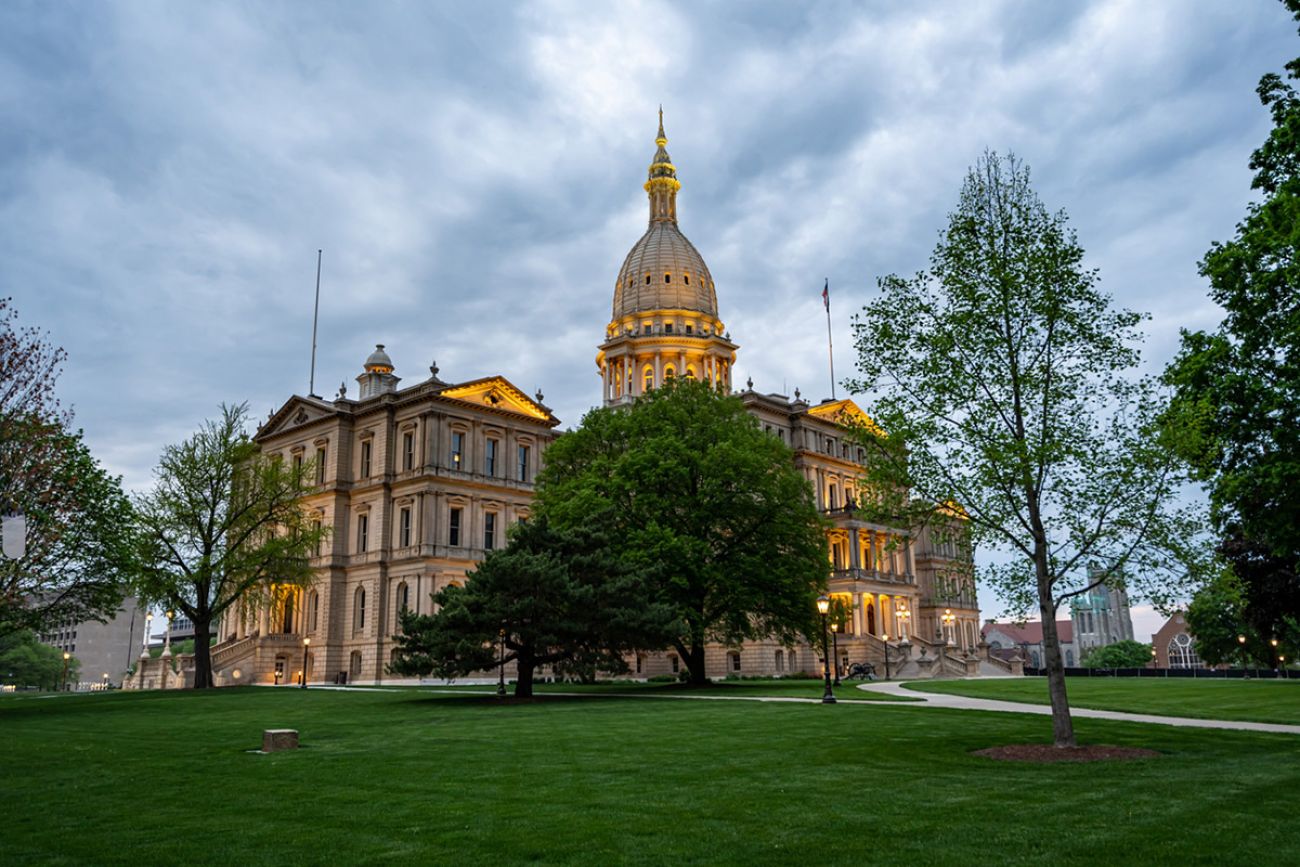Critics call Michigan financial disclosure proposal a weak ‘con job’

- Lawmakers this week unveiled financial disclosure plan for public officials, requiring them to list assets
- Secretary of State Jocelyn Benson, others say there are too many loopholes, not strong enough penalties
- Supporters say plan is first step, better than status quo
Michigan lawmakers are closer than ever to enacting financial disclosure rules for public officials and candidates into state law, but Secretary of State Jocelyn Benson and some fellow Democrats say the plan leaves much to be desired.
She and others urged legislators on Wednesday to mandate disclosure of spousal income, gifts from political nonprofits and other groups and beef up other parts of the proposed rules that were unveiled this week.
“This is Michigan's part in either restoring the trust of the voters or trying to pull the wool over their eyes,” former state Rep. David LaGrand, a Grand Rapids Democrat who repeatedly led efforts to require financial disclosure in Michigan, told lawmakers during testimony in the Senate Oversight Committee.
“We cannot pass legislation which is a con job.”
Related:
- Michigan lawmakers propose financial disclosures. Some fear they fall short
- Michigan lawmakers are writing their own financial disclosure rules. What could go wrong?
- Michigan Democrats vowed transparency reforms. Now, they say maybe next year
Lawmakers have until the end of the year to enact financial disclosure regulations following the passage of Proposal 1, a 2022 initiative approved by voters that requires lawmakers and statewide officials, including the governor, to annually disclose their income sources and a description of their assets.
Senate Bills 613 through 616, introduced with bipartisan support this week, would require officials and candidates for office to disclose all income sources that exceed $1,000, as well as assets, stocks, bonds, unearned income and liabilities exceeding $10,000.
Benson told lawmakers the bills are a good start but leave “too many loopholes” and lack stiff penalties and enforcement options necessary to ensure compliance.
“There's a lot more we need to do in order to truly make real the will of the voters and ensure Michigan is not among the worst in government transparency and ethics,” Benson said. “We've often said we want to go from worst to first. These bills on their own would not take us there.”
Good-government groups, including the Center for Public Integrity, have consistently ranked Michigan low for government integrity, in part because of weak laws regarding lobbying, financial disclosure and public records.
Michigan is one of two states that exempts the governor and Legislature from the Freedom of Information Act. Democrats have acknowledged they won’t fulfill their promise to reform the public records law this year.
Supporters of the financial disclosure bills said Wednesday that more government transparency reforms are coming, citing the need for urgency to comply with constitutional requirements.
Some regretted there isn’t enough time in the legislative calendar to do more.
“I don't think we should pat ourselves too hard on the back today, considering that it's October, and we should have brought these bills to the fore in January,” said Sen. Ed McBroom, R-Waucedah Township.
Senate Elections and Ethics Chair Jeremy Moss, a Southfield Democrat and a lead sponsor on the package, urged critics to “shake off your pessimism,” calling the legislation the “long overdue beginning” of improving government transparency in Michigan.
“This is objectively a huge step forward compared to the system that does not hold our elected officials accountable,” Moss said.
“I, for one, couldn't be more enthusiastic that this day has finally arrived, and no one's going to steal that joy from me,” he added.
LaGrand countered that the Legislature could easily fix what he viewed as the most glaring issues with the bills: wide exemptions for spousal disclosure requirements, and the lack of disclosure of gifts offered by people other than lobbyists.
“You cannot have a legitimate, authentic trust-based relationship with the people if you have an exception in your bill which invalidates the entire bill, potentially,” he said. “Do not pass this and hope that people will stop paying attention. We have to pay attention right now.”
House Democrats diverge
Later Wednesday, a group of House Democrats unveiled their own proposal for financial disclosure, which in certain respects differs substantially from the Senate package.
The House plan, whose sponsors include Rep. Phil Skaggs of East Grand Rapids, and House Ethics and Oversight Committee Chair Erin Byrnes of would require additional information about income sources, businesses and other assets over $50,000 for a filer’s spouse and dependents.
Their version would also require filers to specify whether assets and income sources over $1,000 were under or over $50,000. Some transparency advocates have argued such a value range is important to understanding the extent of potential conflicts.
“If we're going to have financial disclosure which voters are going to believe as genuine, then we have to make sure that there are not places where candidates and elected officials can easily hide their money,” said Skaggs, who served as LaGrand’s legislative director before running for office.
Both the House and Senate worked closely on financial disclosure bills, but “in the end had some differences of opinion,” Skaggs said. The bills were not assigned to a House committee by leadership, which Skaggs said amounts to a “missed opportunity” to implement meaningful reforms.
See what new members are saying about why they donated to Bridge Michigan:
- “In order for this information to be accurate and unbiased it must be underwritten by its readers, not by special interests.” - Larry S.
- “Not many other media sources report on the topics Bridge does.” - Susan B.
- “Your journalism is outstanding and rare these days.” - Mark S.
If you want to ensure the future of nonpartisan, nonprofit Michigan journalism, please become a member today. You, too, will be asked why you donated and maybe we'll feature your quote next time!




